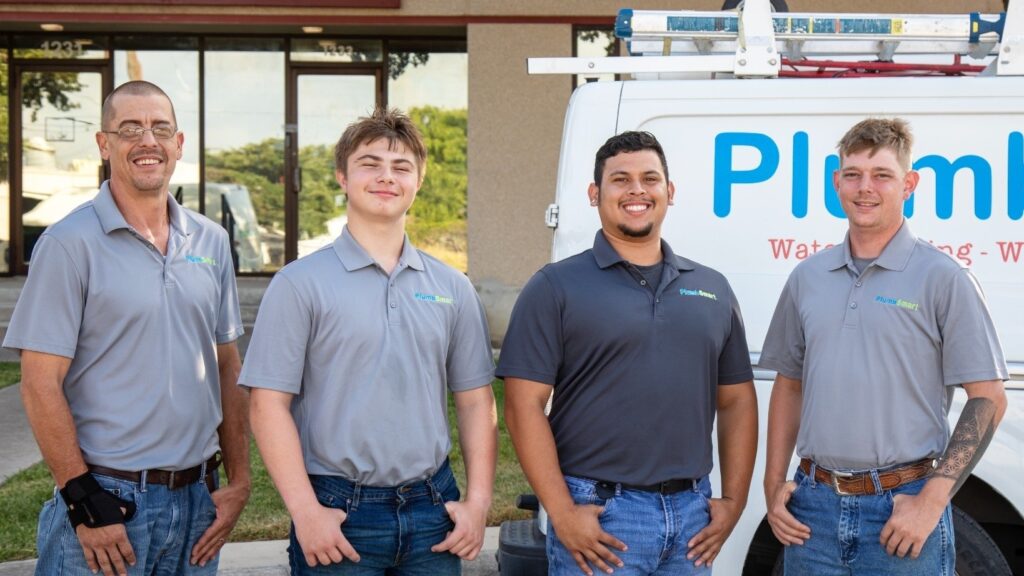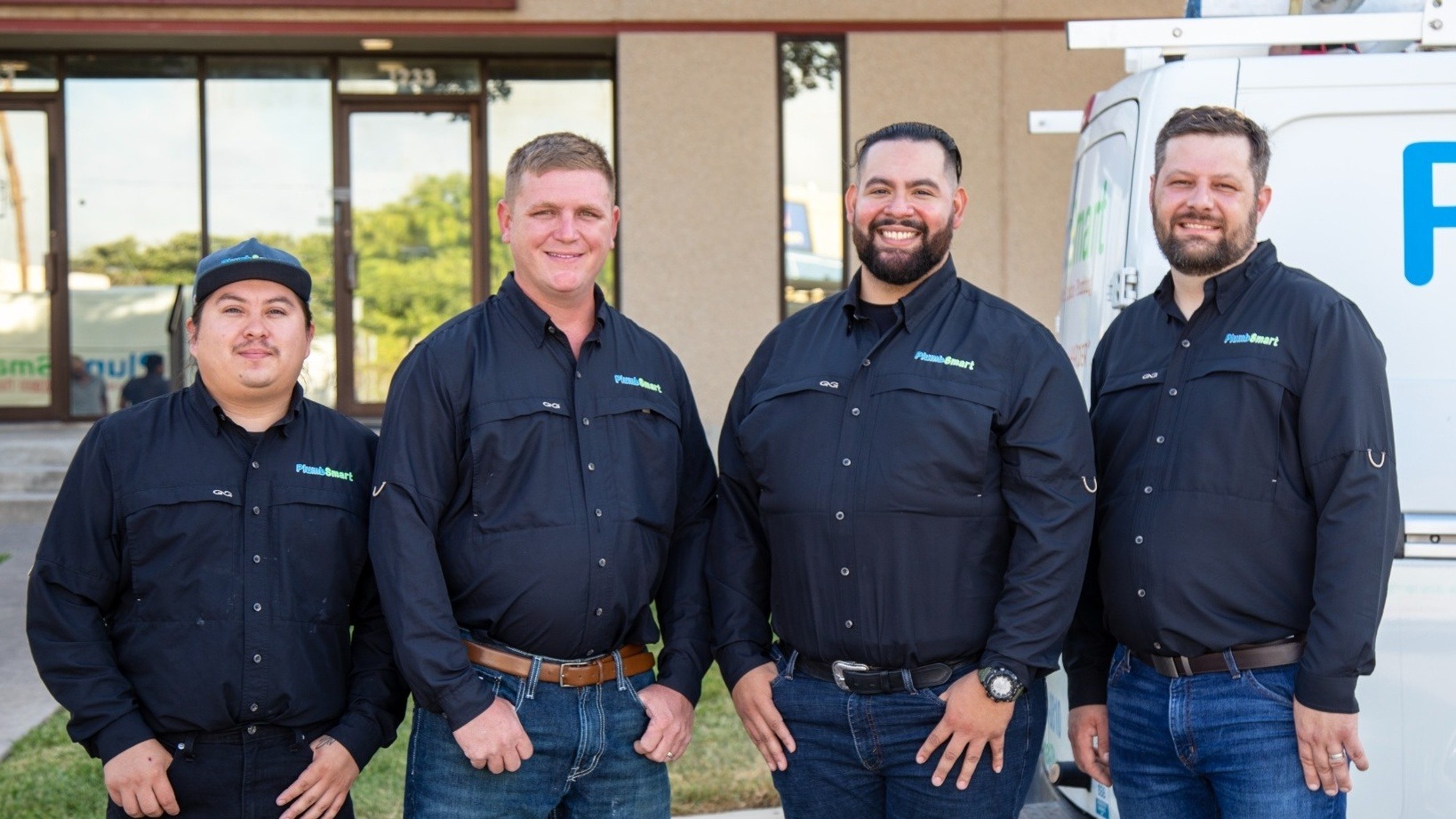Summer plumbing trouble starts with small annoyances
In summer, your plumbing gets used harder and longer: more dishes, more laundry, more showers, more guests, and more outdoor watering. The funny thing is that the “big” problems usually start as tiny ones. A faucet that sputters. A sink that drains a little slower than yesterday. A toilet that needs an extra jiggle on the handle.
In San Antonio, TX, those small signs matter even more because heat and hard water have a way of turning “minor” into “why is there water in my cabinet?” fast. The good news: most summer plumbing issues are predictable, and a lot of them are fixable with basic tools, a little patience, and knowing when to stop before you create a bigger repair.
What counts as a summer plumbing problem in a real home
Summer plumbing problems are not just broken pipes. They’re anything that interrupts daily water use or threatens water damage when your home is being lived in at full speed.
In a kitchen, that often looks like a slow drain, a garbage disposal that suddenly sounds angry, or a faucet that sprays like a sprinkler when you flip the handle. In bathrooms, it’s frequently a running toilet, a shower that never feels quite “strong enough,” or a mysterious damp smell near the vanity. Outdoors, it’s dripping hose bibbs (your outdoor faucet), wet spots that will not dry, or water pressure that dips when irrigation runs.
The important part is why these issues matter. Summer problems tend to:
- waste more water than you think
- hide behind cabinets where you do not notice them until damage spreads
- show up right before a trip, a cookout, or family visiting
If you get ahead of them early, you can avoid the “emergency plumber on a weekend” situation.
Why these issues happen and the seven problems you’ll see most
Most summer plumbing problems come down to a few repeat causes: heat-related expansion (parts swell and seals shift), higher daily demand, and mineral buildup that slowly narrows water paths. Add older shutoff valves and aging supply lines in some neighborhoods, and you get a perfect recipe for warm-weather leaks and clogs.
Here are the seven issues PlumbSmart hears about the most in summer, plus practical fixes.
Slow kitchen sink drains. Summer cooking means more oils, sauces, and “just rinse it” habits. Grease coats the inside of pipes and grabs food bits as they pass.
Fix it: Skip harsh chemical drain openers. Start with a full sink of hot tap water, a small squirt of dish soap, and then let it drain while running the faucet hot. If it still drains slowly, remove and clean the P-trap (the curved pipe under the sink) with a bucket underneath. That curve is designed to hold water and block sewer gases, but it also catches gunk.
Garbage disposal jams and mystery smells. Disposals hate fibrous foods (celery), starchy peels, and fats that turn solid again in the pipe. Smells usually mean residue stuck under the rubber splash guard or in the elbow after the disposal.
Fix it: Turn power off at the switch, then use tongs to pull debris from the splash guard area. Flush with cold water while running the disposal. If it hums but won’t spin, many units have a hex slot underneath you can turn with an Allen key to free the plate.
Dripping outdoor faucets and hose connections. That steady drip is usually a worn washer, loose packing nut, or a hose gasket that cracked in the sun.
Fix it: First, make sure the hose washer (the little rubber ring inside the hose end) is intact. If the faucet itself drips when the hose is removed, snug the packing nut slightly and see if the leak stops. If it keeps dripping, the internal washer may need replacement.
Low water pressure at the kitchen faucet. In summer, homeowners notice it more because sinks are running constantly. Often it’s not the whole house, it’s just one faucet. The most common culprit is a clogged aerator (the small screen at the faucet tip).
Fix it: Unscrew the aerator, rinse debris, and soak it in vinegar if you see white crust. That crust is mineral scale, and it can block flow like a coffee filter. While you’re at it, it’s a great time to consider a WaterSense-labeled replacement aerator or faucet, since WaterSense labeled bathroom faucets are designed to use a maximum of 1.5 gallons per minute without sacrificing performance, which can help reduce unnecessary water use when the faucet runs all day long in a busy home (WaterSense labeled bathroom faucets).
Toilet “phantom flushing” or constant running. Hot weather does not break toilets, but it does make you notice the noise more, and worn rubber parts often choose inconvenient timing. A flapper (the rubber valve at the bottom of the tank) that is warped or slimy will leak water into the bowl, causing random refills.
Fix it: Turn off the toilet supply valve, flush to empty the tank, and replace the flapper. It’s inexpensive, and it solves a surprising number of “my water bill jumped” mysteries.
Water heater strain and lukewarm showers. Summer makes people assume the water heater gets a break. In reality, guests, laundry, and longer showers can make a tank work harder. Mineral scale can also blanket the heating surface, forcing the heater to run longer.
Fix it: If you have a tank heater, a controlled flush can help remove sediment. If your hot water turns rusty, you hear popping, or the heater is older, it’s worth getting it inspected before you try repeated draining.
Sewer or main line backups that start as “gurgling.” Summer storms, tree roots searching for moisture, and heavier water use can push a marginal sewer line into a messy backup. Early signs include gurgling drains, slow tubs, or a sewage smell near floor drains.
Fix it: If more than one fixture is affected, stop using water and avoid plunging aggressively (it can force a blockage into a worse position). This is a “don’t wait” problem.
A practical checklist before you start fixing anything
Before you take anything apart, slow down and do these quick checks. They prevent most DIY mistakes and save you from working twice.
- Confirm whether the issue is one fixture or the whole house by testing a second faucet or drain
- Clear the area under the sink and place a towel or shallow pan down before loosening any connection
- Know where the nearest shutoff valve is and test that it turns gently before you need it in a panic
- Take a photo of the under-sink setup so you can put parts back the same way
- Start with the easiest removable restriction first (aerator, showerhead screen, P-trap) before chasing hidden pipes
- If you smell sewer gas, refill dry traps by running water for 30 seconds before assuming something is “broken”
- Stop if you see corrosion, swollen hoses, or crumbling valve stems, because forcing old parts can cause a sudden leak
Pressure, flow, and hard water: what’s really going on
A lot of homeowners describe problems as “low pressure,” but in a kitchen it’s often low flow. Pressure is the push behind the water (what the plumbing system can deliver). Flow is the amount that actually comes out of your faucet once it passes through screens, valves, and cartridges.
That’s why cleaning an aerator can feel like a miracle. You didn’t change the home’s pressure. You removed a bottleneck.
Hard water adds another layer. Minerals like calcium and magnesium can precipitate out and form scale. Scale narrows passages inside faucet cartridges, angle stops (the shutoff valves under sinks), showerheads, and even water heater components. In San Antonio, TX, hard water is not a rare edge case; SAWS reports typical hardness ranges of about 15 to 20 grains per gallon, which is enough to create stubborn buildup over time (typical hardness ranges).
A helpful myth-buster: installing a “stronger” faucet does not fix weak performance if the real problem is scale or a partially closed shutoff valve. Another one: removing the aerator permanently might feel better for a week, but it can cause splashing, waste water, and make it easier for debris to enter the faucet head and clog it again.
If you’re fighting repeat scale, that’s usually a sign to address the water conditions, not just the symptoms.
When a simple upgrade reveals a bigger problem
Sometimes you replace a faucet or fix a drain, and suddenly you notice other things you have never seen before. That doesn’t mean you caused the problem. It usually means you disturbed an older system and uncovered weak points.
Stuck shutoff valves. If you try to close a valve under the sink and it will not move, do not muscle it. Old valve stems can snap or start leaking around the handle. If a valve turns but won’t fully shut off, don’t keep cranking down; it can strip the internal washer.
Corroded supply lines. Braided stainless lines look tough, but the internal rubber can degrade, and connections can corrode. If you see greenish crust, rust, or swelling at the ends, replace the line rather than reusing it.
Gurgling drains or sewer smells. Gurgling can mean the drain is struggling to breathe because of a partial blockage or venting issue. Sewer smells can also come from a dry P-trap if a sink isn’t used often in summer. Refill the trap with water first. If the smell returns quickly, stop using harsh chemicals. Those products can damage fittings and create fumes in a closed cabinet.
Water hammer. That loud bang when you shut off a faucet is water hammer, which is a pressure shock wave inside the pipe. Don’t ignore it. Repeated hammering can stress connections over time. The fix may be as simple as securing a loose pipe, adding an arrestor (a small shock absorber), or adjusting a pressure issue.
When in doubt, the thing you should not do is “tighten everything hard and hope.” Most plumbing seals are designed to be snug, not cranked.
How to tell if your fix actually worked
A repair is not successful just because water runs again. The real test is whether it stays dry and stable through normal use.
After you reinstall anything under the sink, dry every connection with a paper towel and then run water for a full minute. Use your fingers to feel around the joint, because small leaks don’t always drip right away. For drains, fill the sink halfway and release it all at once. A good drain handles a surge without backing up or burping air.
Over the next few days, check the cabinet floor with a flashlight. Look for:
- water spots on the back wall
- swollen particleboard
- a musty smell that wasn’t there before
For toilets, add a few drops of food coloring to the tank water and wait 10 minutes without flushing. If color appears in the bowl, the flapper is leaking.
The goal is confidence, not just “it seems fine.”
When calling PlumbSmart is the cheaper option
DIY is great for the simple stuff: cleaning aerators, replacing toilet flappers, tightening a loose slip nut, or clearing a basic P-trap clog. But if your “quick fix” turns into repeated symptoms, that’s where calling a plumber can save money, not spend it.
If your kitchen drain keeps slowing down, a professional cleaning gets the buildup you can’t reach and helps prevent backups. That’s exactly what drain cleaning is for, especially when grease has coated the line beyond the trap.
If you’re seeing under-sink leaks, mystery drips, or a faucet install exposes old valves and corroded connections, it’s smart to get help before water damages cabinets and flooring. PlumbSmart handles that every day through kitchen plumbing repair, including shutoff valve replacements and safe fixture hookups.
And if hard water scale is constantly clogging screens, reducing flow, and shortening the life of appliances, it may be time to stop fighting the same battle one faucet at a time. A properly sized system from water softener installation can reduce mineral buildup so your fixtures stay cleaner and your plumbing stays more consistent through the hot months.
A simple summer plan that prevents most problems
If you only do three things this summer, make them these: confirm everything fits before you force it, choose reliable parts that won’t fail under daily use, and plan for your home’s water and drain conditions instead of pretending they don’t exist.
That means cleaning faucet screens before you assume you need a new fixture. It means handling grease like trash, not like “liquid drain cleaner.” It means watching for the early signals: the slow drain, the tiny drip, the gurgle that wasn’t there last week.
Stay ahead of the small stuff, and your summer stays about cookouts and cold drinks, not wet cabinets and emergency shutoffs.




